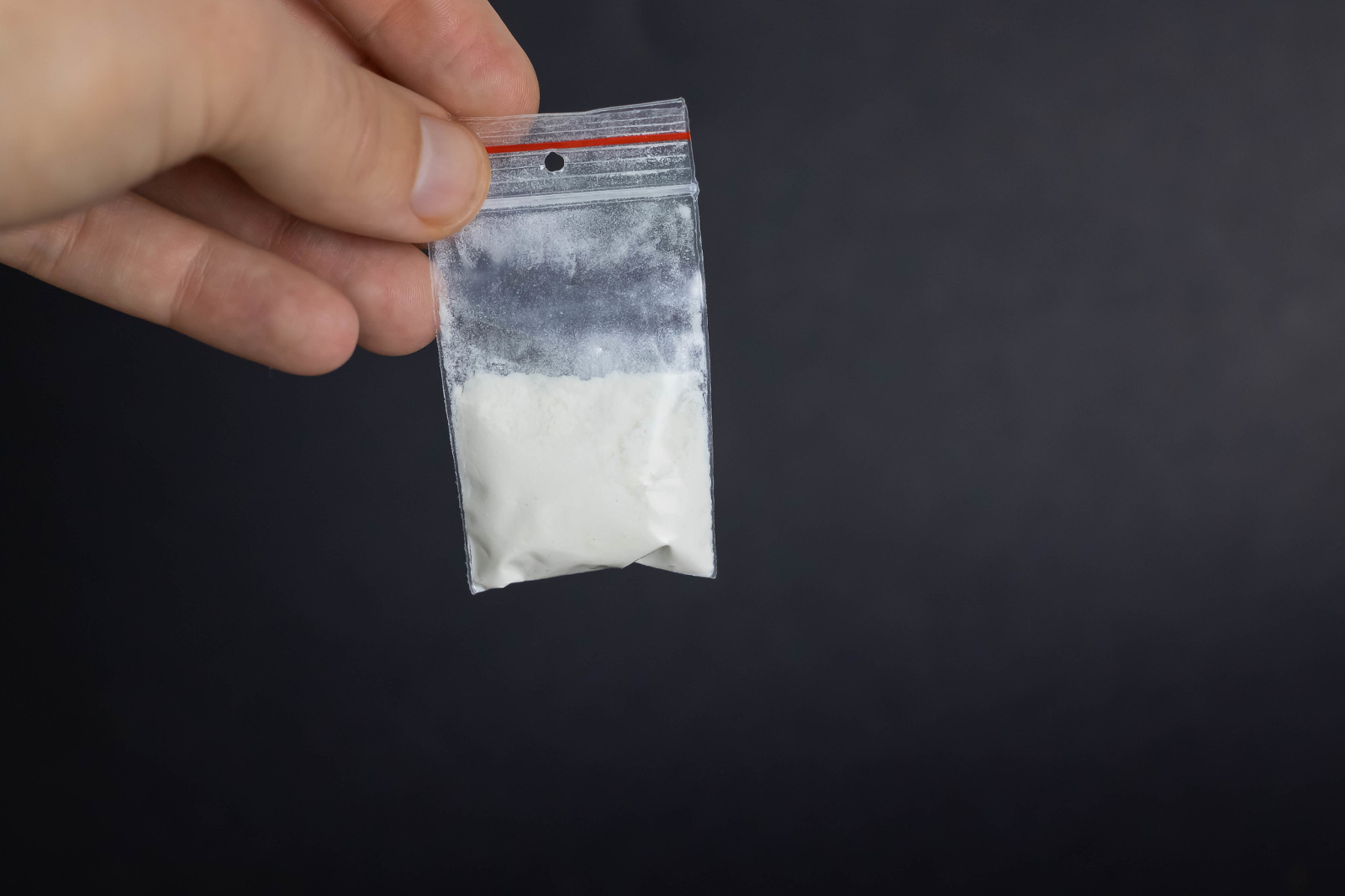Police in the UK have come up with a new way of trying to deter the increasing number of people using cocaine. An “anti-cocaine” spray is currently being used in Darlington, a large town in North East England, and is being touted by the manufacturer as a success. Last month, Durham Constabulary tweeted that they were the first police force in the region to use the “groundbreaking anti-cocaine spray,” which they’re giving out to pubs and clubs in Darlington.
The spray, BLOKit, is being applied to surfaces in the bathrooms of these venues. Once the clear liquid is sprayed, any contact made with cocaine, or any other powdered drug, will cause the drug to expand and stick to the surface, stopping the user from snorting it. And if the person actually manages to consume any of it, any small sense of victory will soon be soured: BLOKit apparently contains “the world’s most powerful bittering agent,” and the foul taste is said to last hours.
BLOKit, made from a non-toxic mixture of resins and surfactants, is currently being used in 24 licensed premises. “Darlington is just like any other large town or city–people do take recreational drugs here, and we would be naïve to think otherwise,” said Sergeant Matt Plumb, from Darlington Neighbourhood Police Team. “We are doing something proactive to tackle it.”
“It’s performative policymaking, a photo opportunity for a tabloid audience.”
Experts aren’t buying that. Steve Rolles, senior policy analyst at Transform, a UK think tank that advocates for drug policy reform, said the spray is nothing short of a gimmick.
“I think it’s an example of being seen to act,” he told Filter. “It’s performative policymaking, a photo opportunity for a tabloid audience. There’s no basis to think it will have a meaningful effect on risky drug use.”
Millwood Manufacturing, the company behind what’s described as the world’s first anti-cocaine spray, says its creation is a success, with pubs and clubs reporting a reduction in the use of the drug. Rolles responded that he had no idea how the manufacturer could substantiate such a claim, and that he didn’t find it “credible.”
As far as people who use cocaine are concerned, it’s not really anything that they haven’t seen before. A host of past strategies attempting to curb cocaine use in British pubs and clubs have included removing toilet lids; covering surfaces with vaseline; removing flat surfaces in bathrooms; and employing “toilet bouncers” to police any potential drug use in bathrooms.
The effectiveness of these measures is doubtful, and in some cases they have made people less safe.
“If people want to do coke, they will.”
“I was about to do a line in the toilet of a bar in London some years ago, when a bouncer unlocked the door from the outside and suddenly burst in on me,” one person, who asked to remain anonymous, told Filter. “He grabbed hold of me. Having had a few drinks, I was so panicked that I swallowed my bag to stop him getting it.”
“If people want to do coke, they will,” another person who occasionally uses it told Filter. “They tried putting in curved toilet roll dispensers but that never stopped us! I’ve used my phone to chop lines before.” He added that the spray would be no more effective than the other attempts, calling it a “mild inconvenience.”
These verdicts were echoed by Dr. Laura Garius, the policy lead for Release, the national centre of expertise on drugs and drug laws in the UK.
“It is not surprising to learn of another police-led scheme designed to target people who use cocaine, and this comes hot on the heels of the UK Home Secretary’s so-called ‘crackdown on middle-class drug use,’” she told Filter. “The reality is that people who use cocaine do not require a surface to consume it and this spray will do nothing to reduce drug use.”
“Given a five-fold increase in cocaine-related deaths in England and Wales over the last decade, what we need are effective harm reduction campaigns.”
“Moreover, it will do nothing to reduce the potential harms of cocaine,” she continued. “Given that there has been a five-fold increase in cocaine-related deaths in England and Wales over the last decade, what we need are effective harm reduction campaigns to help people use drugs (including cocaine) more safely.”
Cocaine has become increasingly accessible, and is one of the most popular drugs in the UK. The 2020 Global Drug Survey found that British respondents reported the second highest level of cocaine use of the countries surveyed, at 39 percent.
The previous year, the same survey found that a majority of cocaine users would support—and would be willing to pay extra for—a regulated, “fair trade” supply of the drug, ensuring a safer product and a better living for South American farmers who grow coca for the international market.
The legal regulation of cocaine (and other drugs) is a solution that Rolles, too, has called for.
In the meantime, “we should be focusing on educating people about the risks of cocaine use, particularly its association with risky alcohol consumption, and encouraging them to make responsible choices,” Rolles told Filter. “That could actually have a positive impact in reducing drugs harms, something a long history of ‘world first’ anti-drug gimmicks have singularly failed to do.”
Photograph by Marco Verch via Flickr/Creative Commons 2.0





Show Comments